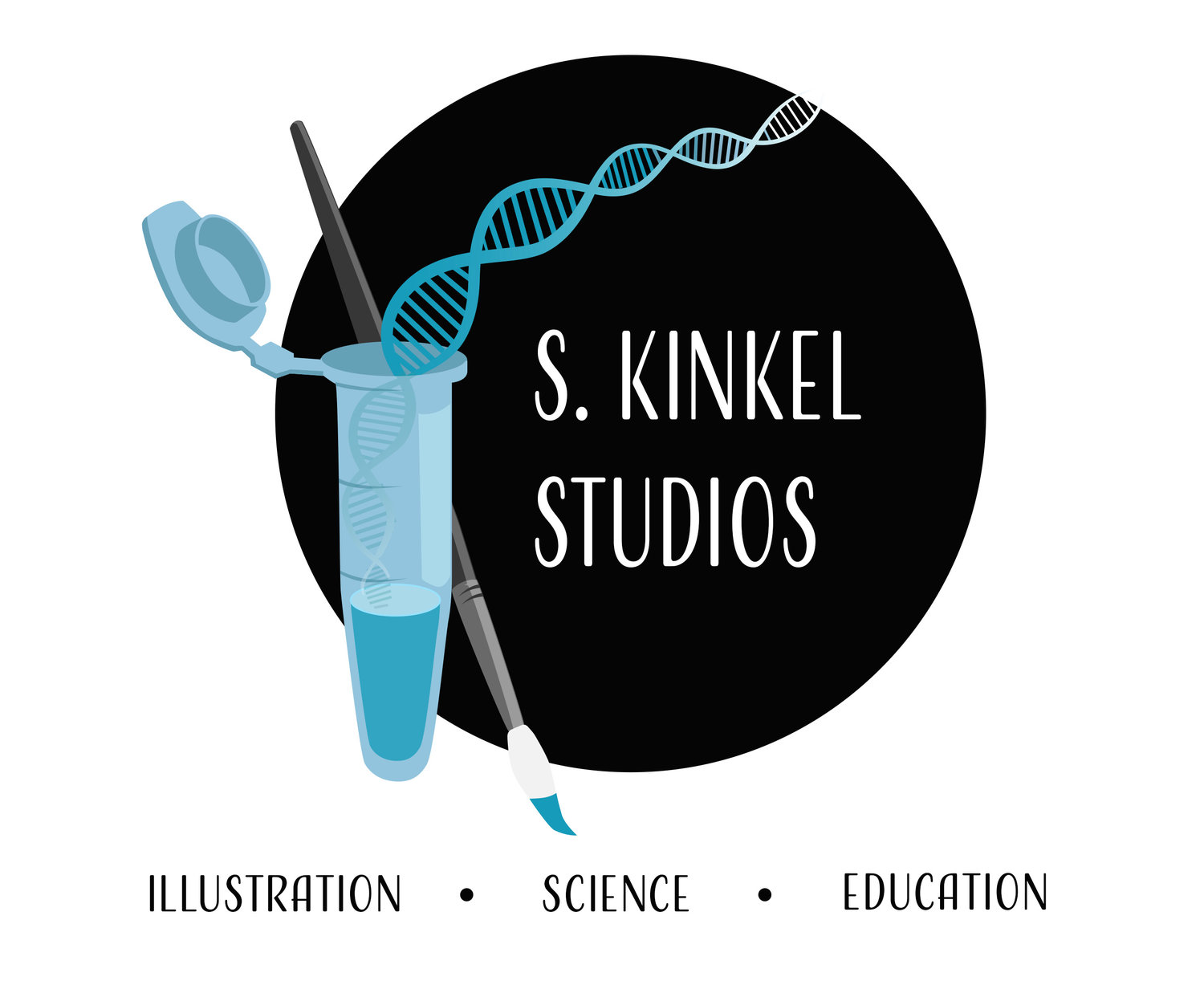After 6 years of teaching and a partial lifetime before that of other experiences, I’ve returned to school as a student. For the last 6 months, I’ve been enrolled in a graduate program in science illustration. As I’ve learned, I’ve posted my victories - clinging to them for dear life - as I experience what learning is truly like with an adult frame of reference. Given how I witnessed my former students face challenges and thrive, I felt and feel uniquely equipped to excel in learning now. That though, leaves off the process and the struggle, as do my recent posts. I would be remiss - no negligent - not to help folks understand what it truly looks like to learn.
First, let me say, that learning in general, looks like this. That is a link, and I beg you to watch it. No really, please watch that video again and again every time you feel frustrated or confused or convinced that someone else must just be gifted. Learning is a process and it involves falling or failing (in this wee one’s case on your face) numerous times whether or not anyone else sees it. It also involves trying again without a prolonged episode of comparison, self-pity, or telling yourself you can’t do it. This baby giraffe is a star.
For me, the process of learning to illustrate has been humbling. As new media and techniques are introduced, I have felt over and over again like this long-legged sweet face-faller. I have also been incredibly blessed to feel at times the thrill of standing, often with the gaze of a benevolent giraffe onlooker in the form of a teacher, teaching assistant, or classmate. But then another new thing comes down that pipeline, and I return to naivety. At times, I overcompensate for this naivety with self-deprecation or overexertion, sometimes I flex my teacher muscles and imagine what I would advise a student to do and do that (hint: this often involves repetition), sometimes I just get into a groove and hope for the best. Sometimes I revel in the mastery that comes with having worked hard at something and getting ahead. Sometimes, I quietly and briefly walk out of the classroom and take a walk because I literally need air or a chai latte or a forgotten pencil before I can do anything else. I’m familiar with the perspective of this wee giraffe; at times I’m just getting my balance.
Here’s a very clear example of learning over time:
An example of repetition helping to increase mastery.
Illustrating realistically though is a unique thing to learn. It involves seeing things for what they are and transferring that knowledge to a piece of paper, or canvas, or computer screen. It is at its core, overriding the tendency for our brain to take shortcuts: a face is not an emoji, nor is a bunny head a circle and two ovals. It is important that our neural circuits are designed to make shortcuts. These are useful. It isn’t efficient for me to have to conceptualize every pore on your face in order for me to recognize you as friend, or self, or enemy. These symbolic representations are also though extremely limited and terribly inaccurate, and explain our tendency for bias and assumption. Drawing realistically then is a process of seeing for the first time. And when you miss the mark, well - the results are on the page clear as day. This process has reminded me over and over again how I might be mistaking things in my day-to-day life, as I fail to render them accurately on the page. In effect, in addition to learning to draw, paint, digitally create images, and animate, I am also learning how to see things, people, and interactions mindfully. If only there were a similar read out for when I fell short!
There’s more to say here, in that your goal may not be to be the very best accurate illustrator. Nor ought it to be. And, that sometimes more repetition, while leading to more mastery, may also deplete other areas of your life that are important, like loving your friends and family, going to the gym, walking your dog, and being a good human. But that’s for another post.
In summary, learning is messy and it’s supposed to be. Social media doesn’t always illustrate that (pun intended) so I wanted to here. Our brain is designed to accumulate new information, and we need to be patient with it and ourselves as we integrate that. We can’t ever expect to be perfect, but we can hope for an upward arc and surround ourselves with giraffe friends who care enough to say: hey, I think you can do it; you’re on the right track. I’m certainly grateful for mine.

